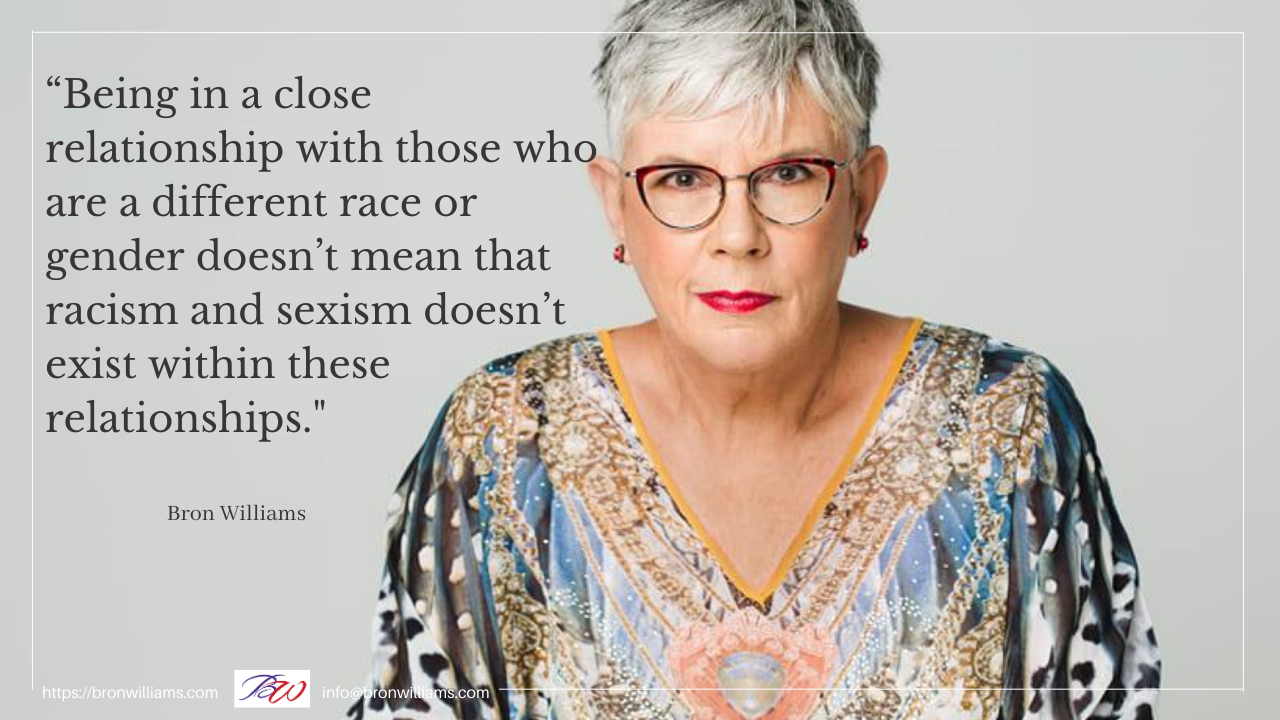Can I still be sexist even if love the women in my life?
The short answer is: yes!

This week let’s explore two other illicit biases that people sense are really wrong: sexism and ageism.
Just as my racial heritage is assigned at birth, so is gender - largely on the basis of visible sexual organs and is also outside the control of the individual at that time. Across the globe, across cultures, and across time, gendered norms of behaviour and roles have developed with those born male having privileged places over those born female, especially in terms of power, influence and decision-making.
While people know that there is a shared humanity between males and females, generations and millennia of tradition and training have ensured that there is an imbalance in power between males and females, with females being deemed less worthy or capable than their male counterparts. This perceived lack of worth plays itself out across workplaces and boardrooms, sporting fields and academia, across science and the arts. This over-riding of the recognition of shared humanity by the power imbalance resulting from gendered roles and norms may also explain why males who transition to female are viewed as somehow having betrayed their gender by ‘going over to the other side’.
When accusations of sexism are levelled at males, a common response is that they could not possibly be sexist because they are married to a woman or have daughters. A similar argument is raised with regard to racism – that somehow racism doesn’t exist when a person is married to a person of a different race or has friends from varied racial groups. Adjacency to – that is, being in a close relationship with - those who are a different race or gender does not automatically mean that racism and sexism doesn’t exist within these relationships. It is this possibility of holding deep-seated biased attitudes towards even those we care about – let alone those we work with or pass in the street - that causes people to resist, often strenuously, any charges of racism or sexism.
Now, to the peculiarly 21st century problem of ageism.
As populations become top-heavy with those born post-World War ll ageism has become an issue. The Baby Boomer explosion of the 50s and 60s - a response to the fear and scarcity of the war years - heralded educational reform, rapid technological progress and the loosening of gendered norms. However, later generations view Boomers as people who failed to take action environmentally and who are to be blamed for the current poor state of the natural world. Where past generations respected the aged among them as vessels of wisdom and knowledge that could be passed down to the next generation – an attitude still strong within indigenous cultures – western society deems aging as an event to be delayed as long as possible.
While ageing is a common experience for people, it isn’t often viewed as the gift that it is - not everyone gets the opportunity to age. It is easy to simply denigrate those who are ageing while ignoring the reality that getting older is a common human experience. This shared human experience of growing older is overshadowed by the largely negative connotation attached to ageing. These negative perceptions then become the basis for judgement about the worth of those who are older. This can happen even while individuals hold close to their heart those within their family who are older, such as grandparents.
Racism, sexism and ageism are common experiences of the disparity between illicit biases and the shared value of being human.